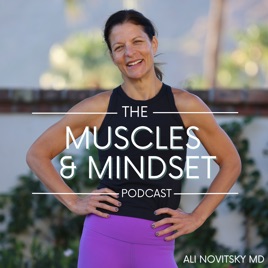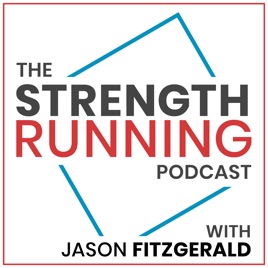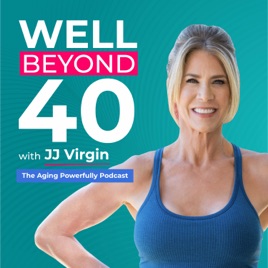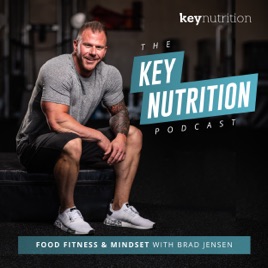196: Fat Loss 101
2024/01/14
Fat Loss 101: Building Muscle and Mindset
Summary
In this episode, Dr. Ali Novitsky, obesity medicine expert, dives into the topic of fat loss and how to achieve optimal weight loss by maintaining muscle mass and losing body fat. She starts by sharing her experience of starting a TikTok account to engage with her audience and address their confusion about weight loss and the old rules of the diet industry.
Dr. Novitsky emphasizes the importance of focusing on both muscles and mindset when it comes to weight loss. She explains that traditional weight loss methods, such as "eat less and move more," are ineffective and can lead to muscle loss. Instead, she advocates for a more holistic approach that includes proper nutrition, strength training, and a small calorie deficit.
She breaks down the concept of total daily energy expenditure, which includes basal metabolic rate, exercise, and digestion of food. Dr. Novitsky stresses the significance of maintaining muscle mass, as it contributes to a higher metabolism and overall fat loss. She also discusses the importance of protein intake and how it supports muscle growth and maintenance.
Next, Dr. Novitsky addresses the question of whether it's better to lose weight first and then gain muscle or vice versa. She explains that the answer depends on individual circumstances and goals. For those with low muscle mass, it may be beneficial to focus on building muscle first to increase metabolism and allow for a more sustainable fat loss journey. However, for individuals with adequate muscle mass, the priority should be maintaining muscle while losing body fat.
She discusses different approaches to tracking nutrition, including macro counting, mindful macros, mindful eating, and intuitive eating. Dr. Novitsky emphasizes the importance of finding a method that works best for each individual and promotes a healthy relationship with food.
Throughout the episode, she stresses the importance of embracing the journey and focusing on non-scale victories, such as increased strength and confidence. Dr. Novitsky also highlights the various programs and resources available, including the Transform program, Fit Woman Collective, and the 31 Days of Fit program.
In conclusion, achieving optimal fat loss requires a balanced approach that prioritizes muscle maintenance, proper nutrition, and a small calorie deficit. By focusing on building muscle and adopting a positive mindset, individuals can achieve their desired body composition and overall health goals.
Takeaways Maintaining muscle mass is crucial for optimal weight loss and body composition. The traditional 'eat less, move more' approach to weight loss is flawed and unsustainable. Protein and macronutrients play a key role in supporting muscle growth and fat loss. The order of losing weight and gaining muscle depends on individual goals and body composition. Marrying the journey and focusing on overall health and well-being is essential for long-term success. Timestamp Chapters: 00:00:02 - Introduction and Starting a TikTok Account
00:01:18 - Importance of Fat Loss 101
00:04:07 - Problems with the "Eat Less, Move More" Approach
00:08:02 - Understanding Weight Loss and Optimal Weight Loss
00:09:06 - Total Daily Energy Expenditure and the Role of Basal Metabolic Rate
00:13:00 - Creating a Calorie Deficit for Fat Loss
00:14:14 - The Complexity of Balancing Deficit, Nutrition, and Exercise
00:17:03 - The Importance of Protein Intake and Strength Training
00:19:01 - Different Approaches to Tracking Nutrition: Macros, Protein, Mindful Eating, and Intuitive Eating
00:22:00 - The Strategy of Losing Weight and Gaining Muscle
00:23:58 - The Personalized Approach to Losing Weight and Gaining Muscle
00:26:06 - The Challenges of Gaining Muscle and Losing Fat Simultaneously
00:29:05 - The Importance of Marrying the Journey and Focusing on Non-Numerical Results
00:30:20 - Information about Programs and Services Offered by the
more















